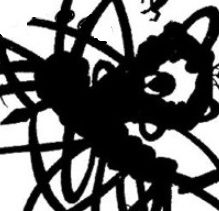
Lots of people over the years encouraged me to try writing. One of them was Jack Elving, one of my favorite comics writers for the past few years. Jack was a tremendous inspiration for this site and even helped me set everything up in the early days. I owe him immensely and gladly welcome him to The Subatomic Viewer as our first guest. On the off-chance you haven’t heard of Jack, you can find him here and on Twitter.
Jack and I previously did a full discussion on Into The Spider-Verse that I recommend you check out. Now, we are teaming up yet again to deep-dive into its sequel, Across The Spider-Verse. Also check out Jack’s new discussion on it with Harry Thornton.
GENERAL (META)-THOUGHTS

LUCAS LOBUGLIO (LL): I’d like to get your general thoughts on this film, and if it met your expectations. I already wrote a first impression, but you haven’t had a chance to speak yet. The floor is yours!
JACK ELVING (JE): It’s strange I’ve seen the film twice but both times I felt like I already saw it if it makes any sense.
Part of it has to do with the weird theatrical experience I had. So I first saw this film on Friday opening week with pals who covered the tickets. We got diverted to the wrong screen and I stumbled into seeing the ending of a film’s screening. I thought I came in at the end of an earlier screening but then it turned out we got diverted to the wrong screen. So i went to the other screen and I saw the film but the audio was so bad I felt I didn’t see the film.
Finally saw it properly four days later and that time it flowed. But for me ATSV feels too raw. More event than movie if that makes any sense. I always chide the MCU and their fanboys for not treating the movies as movies, you know, but the truth is I guess when something means as much to you, you’re not any different.
LL: I get what you mean. It reminds me a lot of No Way Home, although arguably more perfected and bigger in scale (since it’s not just dealing with the live-action Spidey’s). In many ways, it’s a love letter to Spider-Man history and full of easter eggs and fun meta stuff for audiences. And for Spider-Man fans especially.
There were a lot of themes and ideas in this that resonated with me. I’m curious if there’s anything specific that resonated with you personally that elevates this film?
JE: The entire first half of the film dealing with Gwen’s world, and Miles’ world their daily lives. That entire sequence on the rooftop party meant a great deal for me. It was incredibly amazing. The movie did that thing I liked in ITSV where it’s not doing a superhero story, it’s doing a story of characters using the genre. And then of course everything with Peter and Mayday and the film’s conclusion meant a great deal.
That conversation between Gwen and her dad at the end felt quite powerful.
LL: I loved all that too. I think all the parent and family stuff is some of, if not my favorite parts of the film. I loved everything in Miles and Gwen’s daily lives (and Peter’s too – as brief as it was).
I fully agree that it’s “using” the genre in smart ways. I often hear that a great superhero story is something else great first, and a great superhero story second. Both of these films are like that, in my opinion.
It’s amazing that it’s such a meta and universe-ripping film, yet it’s still so grounded and set in mundane things. I find the balance here fascinating.

JE: Yeah, the TSV movies are on hand grounded in the same franchise BS that all superhero movies are, but while catering to the demands on the surface, it’s using it as an excuse to be a collage of animation styles, to do deep stuff with characters, and challenge the premise of the entire genre and even audiences’ investment in it. Like there’s stuff in the film that’s challenging to MY assumptions as well!
LL: Same here! That actually leads into a question I wanted to ask you. I want to get your thoughts on some… potentially controversial things. See, I had no problem with it. But walking out, I felt like other fans would. I can imagine some thinking this film goes against Amazing Fantasy #15. Particularly the idea that determinism plays a role in Spider-Man, and that a bunch of Peters (including some fan favorites) would let an innocent person die.
I’m curious to hear your thoughts on those, or if there is anything else in this that you’re “bugged” by and feel doesn’t belong in Spider-Man stories.
JE: Well the movie is doing this issue of slippage here, where a lot of different metaphors and ideas play at once.
So the big idea is that the multiverse is guided by “canon events” and whatever variations of Spider-Man there are, each one has to go through their own version of it or existence unravels. In the case of this movie, it’s the Death of the Police Captain…usually George Stacy, but in Miles’ case it might be his own Dad, Officer Jeff Morales.

So that big idea operates on a variety of levels. There’s the meta-level in that the Spider-Man movies are fetishized on this fixation on false tragedy. So on that level, it’s all the Spider-Man characters becoming jaded and fatalistic and passive about fate to varying levels. But there’s also other levels.
There’s also the level on which as a superhero genre, the idea of playing god with the multiverse and so on, is often played as something destructive. So we see that with Miguel’s backstory. But the TSV movies isn’t just a superhero story, it’s not just meta-commentary, and for Miles it’s this idea that his life is decided and he’s told to accept things and so on.
LL: I’m on the same page. I mentioned earlier it has a great balance between the high concept and the mundane, and the same is true of the meta stuff and the more “personal” stuff where free will plays a bigger role. So I don’t think the film goes against Amazing Fantasy #15.
I think what the Spiders are doing is closer to what Insomniac Spidey did with Aunt May at the end of that first game. Whether someone disagrees with that or not, the context there is still different than with Uncle Ben. It’s not a case of Spidey being selfish like with the burglar. It’s more like they’re approaching ‘With Great Power Comes Great Responsibility’ from a different perspective.
And also, like you pointed out, it IS criticizing that mindset, to an extent. I love all the meta stuff about how everyone expects Miles’s story to go a certain way ‘cuz of past stories, when the idea of Miles from Day 1 is that he should be a breath of fresh air.
JE: It’s a case of language I think. Miguel O’Hara uses the word “canon”. If he had used a phrase like ‘absolute points’ as in Doctor Who (I think) or points of convergence or Multiverse Constants…and had basically said that this much power of playing god isn’t right…if he had said that then maybe that viewpoint becomes sympathetic. But by using the word “canon events” then the entire thing is framed as being against this notion and idea of canon or the weight of tradition and obviously that term, while neutral in some contexts, has across the public spectrum this huge negative baggage.
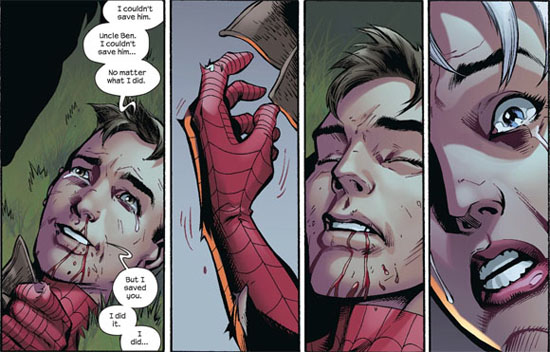
LL: I wanted to jump to Miguel later, but this might be the best place to bring it up: I think that, to an extent, this Miguel is a stand-in for fans who want the franchise to go a certain way. Think of how many things fans criticize when an adaptation or alternate universe Spider-Man doesn’t go the way the traditional story did – it’s not just Spider-Man fans who do this, obviously, but I digress. So Miguel’s anger is part-metaphor for fan anger. I also noticed it when he got angry at Miles for being the “reason” that Peter Parker died. Sound familiar?
JE: Yeah. It’s very much this idea that Miles came in after Peter died in Ultimate Spider-Man and so on.
At the same time I also think there’s a bit more symbolism. Miguel O’Hara in publication terms was Spider-Man’s first legacy title. Spider-Man 2099 came out in 1992 and that was the first title with a Spider-Man who wasn’t Peter. And Peter A David figured back then the future won’t be white anglo-saxon so you have Hispanic-Irish (!) Miguel O’Hara but 2099 never got beyond a cult success. Then decades later Miles comes in and becomes bigger than any legacy for any title.
But with Miguel I think he’s in part driven by this huge guilt and remorse and he genuinely thinks he’s doing the right thing. We see in the opening scene him coming in and rescuing civilians so we see that he’s not a villain and so on…just a sad guy with grief.
LL: I totally agree. Yeah, he is the antagonist but not a “villain”. He reminds me a bit of Thanos in the sense he thinks “This has to be done or there will be consequences”, except Miguel’s intentions and guilt seem genuine and not just an act of rationalization.
We see moments here and there where compassion leaks out of him. Like when he took Gwen in, or even when he apologized to Miles for what he was about to do (letting Jefferson die). He was stern but his apology seemed sincere. I liked all of that a lot.
I do have some questions about his “algorithm”, though. For one, it seems like sometimes breaking canon leads to disaster, and sometimes it doesn’t? Pavitr’s universe starts crumbling the second his police captain is saved, but nothing happens to Gwen’s universe when her dad quits. Also, Earth-42 is a universe without a Spider-Man… That would be an even bigger violation of canon, right? But it seems fine.
Also, does Jefferson still “have” to die if Chris Pine’s Peter operated in that universe for 10+ years? Presumably his Captain Stacy already died. I feel like even by Miguel’s logic, it’s not clear if Jefferson’s death “has” to happen.
I wish they were a bit clearer there.
JE: I think that there will be a payoff in Beyond the Spider-Verse about that stuff.
Obviously Miguel believes that canon events do play out even when they are broken. That Miles got bitten by an interdimensional spider that was originally going to bite the Miles Morales of Earth 42, a world where Peter Parker never became Spider-Man. And when that happened he replaced the Peter of E-1610, Chris Pine’s Peter Parker would have stopped the collider had he not given his life to save Miles…which is obviously a lot of stuff to lay on Miles’ shoulder (and probably why Peter B. and Gwen were against Miguel telling Miles any of that)…and obviously there’s this question the film leaves us…was Miles originally supposed to become the Second Prowler in Earth 1610 and does his superhero story consign the fate of another kid to poverty?
LL: I loved all the Earth-42 stuff with the Prowler. Honestly, I feel like a lot of the stuff we said in our ITSV discussion was proven right. So for example, I said in that discussion that Miles needed all three to become Spider-Man – Aaron, Jefferson, and Peter. Earth-42 is a world where there is no O.G. Spider-Man and where Jefferson died. His influence gets reduced to just Aaron, so then obviously Miles becomes The Prowler. That’s great character stuff and a great payoff to the first film.
And yeah, there will probably be a payoff or explanation about that.

JE: The ending of the movie with the other Miles was really interesting because suddenly it becomes like Jordan Peele’s US. You’ve seen that movie?
LL: That’s the only Peele film I haven’t seen yet. I want to!
JE: Ok I don’t want to spoil that movie…but let’s say the entire confrontation at the end between the two Miles reminded me of that.
LL: Cool! Now I want to see it even more.
mILES Morales and Earth-1610

JACK ELVING (JE): The opening scene of the movie is interesting because the movie’s actually a flashback…with Spider-Gwen narrating over a montage that shows stuff from later in the film. And it’s this monologue that’s done in a poem with the refain “And I’m not the only one…” and it’s quite unlike anything you see in such movies.
LUCAS LOBUGLIO (LL): I loved that because they felt like lyrics to a song. She was clearly drumming that in beat with her drums.
Since we are on the topic of Miles, I’m curious what your overall thoughts were on his character in this film, his personal problems, and also on his supporting cast in both worlds (1610 and 42). I know we already briefly addressed the family stuff and the stuff with Aaron.
JE: To circle above…I think Miles in this movie is obviously dealing with this romantic longing for Gwen and at the same time he’s also got this complex of being about to move into a new world different from that of his parents in variety of ways and that creates tension (which I relate to a lot). So it’s an issue of culture where his community is different from the world of the Brooklyn Visions School and all the opportunities that comes with being Spider-Man and so on and that creates this wedge between him and his parents.
And it’s a really relatable and human problem you see in many families that have generational social mobility. In this case it’s the Afrolatino family who had to put aside their dreams for the sake of family, and whose child gets opportunities closed to them. It’s also I guess a case of the nerd born to a non-nerd family, the first person of your family that goes to college and becomes an intellectual in a family that isn’t intellectual and that creates this alienation between who you are and where you come from.

That scene between Miles and his mother is the heart of the film. She expresses that there, that she’s worried the world outside wouldn’t accept him or protect him the way they have.
LL: I fully agree, and I think I’m in the same boat that Miles had the most relatable family stuff for me personally. I loved Jefferson and Rio’s inner struggles with having to let Miles go and be less sheltering, also how Miles in turn reacts to all of that. His parents remind me the most of my own, especially in the little banter and arguments they have. For example the B in Spanish thing actually happened to me, haha.
I also like how Miles’ longing for Gwen intersects a bit with his relationship to his parents. When Rio meets Gwen, at first she is put off by the fact that “she doesn’t even speak Spanish”. For one, as someone who dated people whose families come from a different culture and vice-versa, all of that was relatable and realistic. But also, there are parallels between that and Miles’ science dream. Both Gwen and the science program are not the partner and education his parents envisioned for him, respectively.
And yes, that scene is absolutely the heart of the film.
JE: Yeah, also Gwen’s side of the story is interesting because she has to wrestle with the fact that she let Miles down. Like she wasn’t supposed to see him again…she was assigned to shadow Spot but she basically decided to meet Miles again and never intended to see him again…probably because she couldn’t handle not seeing him if given a chance, given her feelings.
And then at the end she has to deal with her guilt in that scene with her Dad…and it reminded me of the end of Rebel Without A Cause where James Dean’s character has to deal with the fact that he couldn’t help Plato or be someone he could depend on the same way his own father let him down.

LL: That’s a great comparison.
I loved the relationship between Miles and Gwen. It’s one of, if not the best, relationship we got in a Spider-Man film. And I’m fully on board the Miles x Gwen train now. It’s not just that they have great chemistry, but there is almost something sad about two people who are so similar, who care for each other that much, being literally universes apart. It’s made sadder by the fact that no one in their lives fully understands them. So you just want them to end up together because they’re already living parallel lives… yes, that’s an intentional choice of words on my part. My point is that it’s very Spider-Man.
And yet at the same time, it’s a complete subversion of Spider-Man and of Peter’s story. I like the idea of Miles being the only Spider-Man to end up with a Gwen. It fits the idea of his story going his own way and not like anything before.
JE: There’s also some interesting insights in terms of seeing it as an interracial romance. F. D. Signifier, this great African-American video-essayist noted that in real-life tensions in interracial relationships come because one side doesn’t entirely understand the codes of the other person’s culture. And you see that play out here. He said that he liked the film’s take because it deals with the facts that successful relationships, often have the white partner, correct their assumptions about the codes and social cues that others have to live with.
LL: The interracial aspect is definitely there. Even with interracial relationships being more common than they used to, there are still plenty who are against them or find them “weird”. I love how this movie normalizes and acknowledges those relationships.
Just like in the first one, it does a great job of challenging the audiences’ preconceived notions with race and culture stuff. You have that line where the school counsellor assumed Rio was an immigrant, not knowing Puerto Rico is part of the US – something a lot of people unfortunately don’t know. Puerto Rico functions almost like a colony, since (last time I checked) they’re US soil but don’t have the right to vote in US elections. I like how this movie draws attention to that.
I also said in our ITSV discussion that it’s anti-essentialist. I like that scene where Miles talks to Miguel in Spanish, and it’s almost like it expects the audience to assume that all Latin Americans are a monolith, and then they find out him and Miguel are completely different people in how they view things. Seeing that trope get subverted was great.
JE: One of the things the movie does that’s challenging is that it doesn’t, necessarily, do the colorblind thing where you don’t call attention to Miles’ identity. It’s very much core to who he is…and it draws attention to Gwen and even Peter B. to some extent as being limited in their view as white characters. So Gwen and Peter B. initially siding against Miles and then coming around, is part of that. Because both assume by default that the way of seeing things that they are led to is the default one…whereas Miles just can’t accept that his father has to die.
You also have the smaller stuff where Gwen meets Miles’ parents and calls them by the first name without getting permission…I mean that kind of basic stuff…and it’s so cool to see the movies have these characters who are otherwise sympathetic and likable, fail at that, and do it.
LL: It’s just like with ITSV. It draws attention to race in all the right ways, and downplays it in all the right ways. To the tee. It’s like they want you to walk away from it neither essentialist nor colorblind. They arguably handle this subject better than any superhero film, except for maybe the Black Panther films.
I also like how even though all the Spiders have their own specific and different identities, they all still have specific problems that only they themselves can understand… like living a double-life, or hiding a part of yourself to your parents or guardian, etc. Miles is so different from Peter, yet the Spider-Man problems he faces (like when being late to the rooftop party) are classic Spider-Man 101 problems.
All comic book movies should handle race as great as this does.
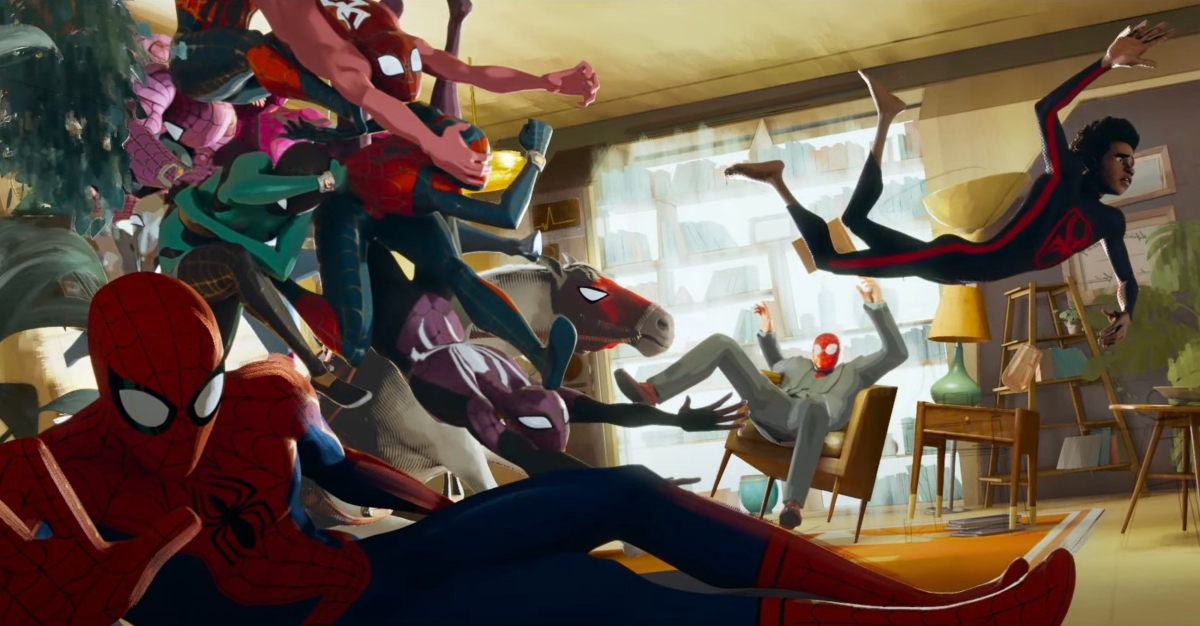
JE: The First Movie said “Anyone Can Wear the Mask?” that Spider-Man didn’t have to be Peter Parker. The Second Movie is going deeper it’s asking “Can Anyone Wear the Mask and have their stories not be a reskin of Peter?” Like the issue in the film is in some way saying do we have Miles be a clone of Peter but he’s black, or do we make him a new Spider-Man for a new era, with some foundation but going new places?
I mentioned this to Harry Thornton, in ITSV, we met many versions of Peter Parker (Blonde, Peter B. Noir, Spider-Ham) whereas in this film we have mostly non-Peter Spider-Man (Miles, Gwen, Miguel, Hobie, Pavitr, Margo Kess, Jessica Drew) and Peter B. has a smaller role and the only other Peter(s) we hear are cameos from Spectacular and Insomniac.
LL: That’s something I’ve been reflecting on. I think this is when Miles finally stepped out of Peter’s shadow. Which I know sounds strange given he was a mainstream hit since 2011… but in the first film, Peter still plays a major role. And even though Miles is solo in the Insomniac game and the Bendis run, Peter’s shadow still looms over the story.
This is the first time when there’s barely any mention of Peter except in passing, and the interesting part? I didn’t even miss him. No one I talked to was like “Okay this is cool, but when does Peter show up?” Not even hardcore Peter fans I talk to online.
But like you said, it’s not because Miles is a reskin either. I’m so impressed by how many times I looked at Miles’ story in this and went “Ah look, he’s dealing with a classic Spider-Man problem!” … and yet nothing about seeing these problems again felt like a reskin of Peter’s story. Absolutely nothing. It’s astonishing, in a good way.
Pavitr Prabhakar and Hobie Brown

JACK ELVING (JE): I will say that the film’s one weakness is maybe Pavitr Prabhakar/Spider-Man India because that character feels very much a cultural translation of Spider-Man and not a fully realized look at what being a non-American/non-Western Spider-Man would be like.
Like why call the city Mumbattan and not Mumbai? Why not make it more like the real city…if we see many AU takes on New York that gets culturally specific (Spider-Gwen is from Chelsea, Miles is from Brooklyn) and Hobie Brown is culturally tied to the ’70s Punk Scene…I felt Pavitr was basically the Spider-Man story but it’s now Indian, so his name mirrors and echoes Peter. he has an Aunt named Maya instead of May, he has a girlfirend called Gayatri Singh instead of Gwen Stacy (in the comics his eventual love interest is Meera Jain instead of Mary Jane) so the initials and name choices are like cultural echoes of the original rather than anything specific.
LUCAS LOBUGLIO (LL): Honestly, I didn’t think about that since Pavitr in the comics is another version of Peter. Miles, Gwen and Hobie are all different people, but Pavitr to an extent is actually a reskinned Peter. Character-wise, though, Pavitr was absolutely the weakest of the four.
Yeah, I did think Mumbattan was the weakest of all the universes, although I still enjoyed it. I’m guessing it’s a fictional city in place of New York, since I think they can only travel dimensionally. What I mean is that if you travel from New York in one universe to another, you’ll still end up in New York.
JE: But Hobie Brown is from London and not New Yolondon or something. Or New Yolo?
LL: Right! I didn’t think of that. Yeah, they could have done Mumbai. I’m actually not that familiar with Spider-Man India, so I’m curious how much of those problems exist in the comic too.
That’s maybe the one universe that could have been fleshed out more.
JE: Visually Pavitr is a hilarious guy and his costume design is gorgeous so in execution it works more than ideas.

Whereas Hobie Brown…I mean that kind of shows that maybe the TSV movies are too grounded in a Western perspective to imagine a non-Western non-immigrant culture? Like in Hobie you can see a lot of cultural specificity and understanding of the ’70s Punk movement in all their choices.
LL: That would be my first guess as well.
JE: But yeah, Hobie is everyone’s favorite character in the film. And it’s such an amazing expression of the collage idea of ITSV…blending different art-styles, different aesthetics and making each Spider-Sona a visual expression of their dimension.
LL: Hobie embodied my favorite of the new art styles introduced. I love everything done visually with him. I also love how he changes colors depending on the setting and his mood, and it all works. Nothing about it feels out of place.
I do think it’s funny, though… and this is maybe a nitpick… but when Hobie met Captain Stacy in Gwen’s universe, did he appear in that art style to him? It’s weird imagining Captain Stacy seeing that in his apartment and being nonchalant. [laughs]
JE: Stacy called him a “piece of work”…which might have been literal. I mean the movie has fun with the materiality of these characters. Like Gwen says that the Vulture at the start of the film is made of parchment…so on some level the animation style we see isn’t simply surface level but part of the story’s narrative…so yeah Hobie should appear as a cut-out walking album artwork wherever he goes.
LL: That makes sense. It’s probably what he meant.
Daniel Kaluuya also gives a great performance. His voice performance is one of the most commanding out of all Spider-Heroes in the film, aside from Miguel’s. He’s also got one of my favorite funny lines in the film, where he calls the universal hole sucking up Pavitr’s universe a metaphor for capitalism.
JE: Kaluuya’s Hobie is great in that he’s like the first example of a punk character who’s a totally nice guy. Like the usual stereotype of the Punk is them being angry and humorless…but Hobie is genuinely chill and kind. Like he’s so kind to Baby Mayday, and despite Miles’ jealousy of Hobie, he’s nothing but nice and kind to him. And Hobie really is a true punk, someone who messes things about and stands back waiting to see what others do.
LL: He’s not only very nice and the total opposite of punk stereotypes, but speaking of race, it’s rare to see black punk characters in fiction. There is almost no representation of AfroPunk in film and media. So having him exist and be awesome and three-dimensional feels very refreshing and appropriate. He is one of the Spider-Heroes from this that I feel deserves his own book.
JE: There were in fact black punk rockers, like Bad Brains and Pure Hell…but they’re kind of written out of histories. And now Hobie Brown will be the most popular Punk archetype going forward.

Gwen Stacy and Earth-65
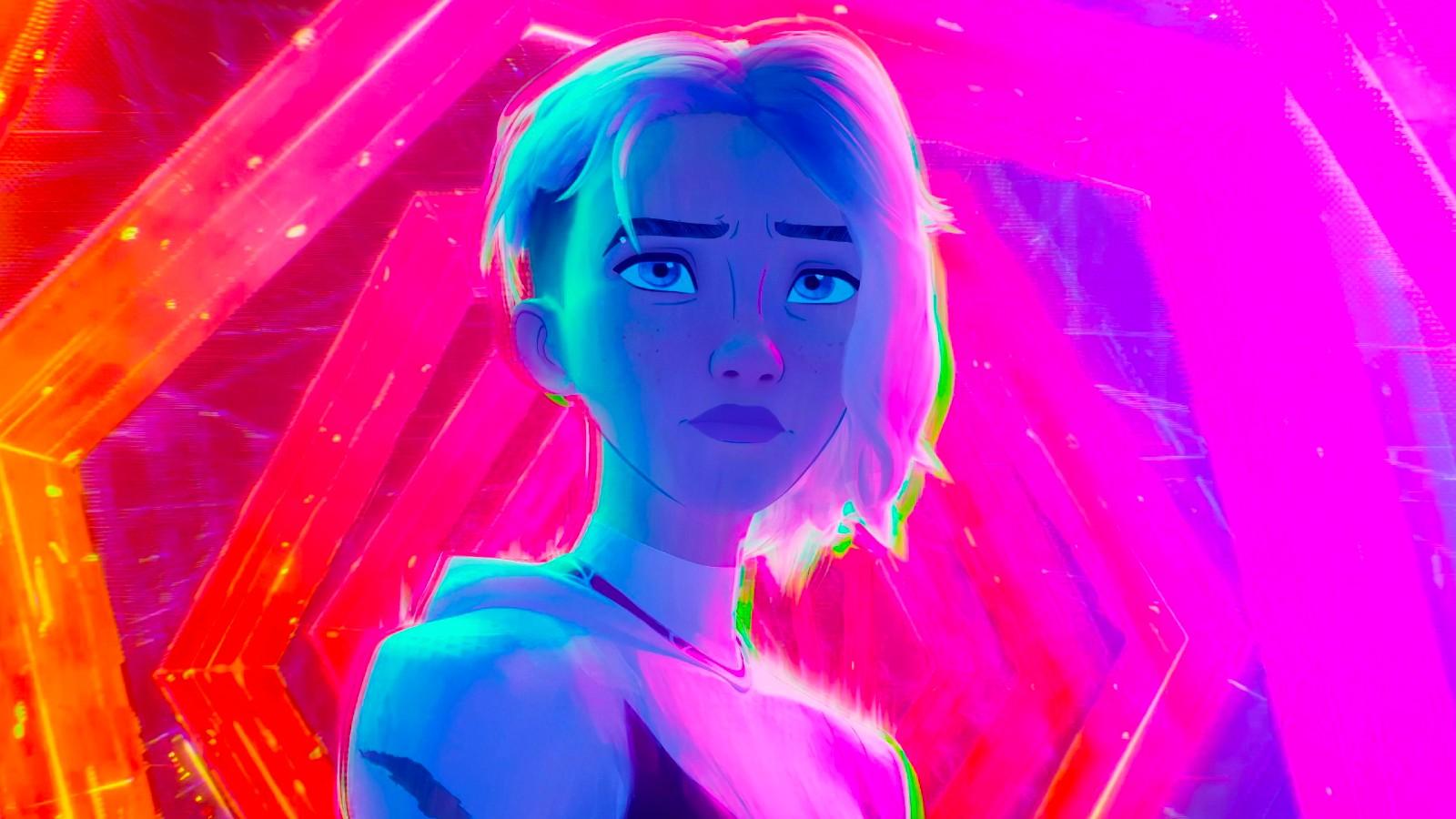
JACK ELVING (JE): We see Gwen being part of a band at the start, and she and Hobie apparently jam together…and one thing I hope we see in the next movie is we see them produce an original song and an actual musical moment. Like I kind of want to see the “Power of Spider-Rock” or whatever.
LUCAS LOBUGLIO (LL): With three of them being musically talented, that’s enough to make a band. “Power of Spider-Rock” can be convincing others to be Spider-Man.
I’m curious what your thoughts were on Gwen’s world in the first few minutes? For one, I loved that we finally got to see that art style from the Spider-Gwen comics adapted. But aside from the visuals, I think there’s a lot of great character stuff there.
JE: I mean for me Spider-Gwen is basically just Gwen Stacy in-name-only. Like for me there’s characters called “Peter Parker” “Captain George Stacy” and a “MJ” but they’re totally different now…so yeah the opening sequence does a lot in establishing Spider-Gwen. She’s artistic…so you have her at the drums, you have her be really knowledgable about stuff at the Guggenheim…and she’s also quite funny in trading quips with the DaVinci Vulture…

LL: Those quips are some of my favorite Spider-Man quips ever. At least in adaptations. And I heard others say this too, but that opening gave me Lee/Ditko vibes. Just in how moody it is and how Gwen has that anger and edge of Lee/Ditko Peter.
I love the contrast between Captain Stacy and Jefferson. Captain Stacy is essentially Jefferson from the first film… so without Jefferson’s character arc and without him losing someone like Aaron. We see Jefferson more lukewarm on Spider-Man this time, and had it not been for those previous events, he would’ve reacted like Captain Stacy did in that scene – one of my favorite scenes in the film, by the way.
Also, I said in our discussion on Into The Spider-Verse that you can do high concept stuff with Spider-Man as long as the focus is on something grounded. And that’s exactly what they did with Gwen. They took the premise that she’s a universe-hopper, and turned it into a metaphor for teen homelessness and parental disownment. All of a sudden it feels real and not silly like in the comics. I was so impressed by that.
JE: One problem with Gwen’s character is that we start out with her in the opening after the band session, and the audience basically knows as much as Gwen does.
But then after she meets Miles…slowly there’s a gap because she’s keeping secrets from Miles and the audience, and the whole issue of “canon events”, the idea that Gwen has known for sometime that her father would likely die and that she probably hasn’t been going back, that’s a bit dark in terms of subtext. Like the idea that your relationship with your Dad is so estranged that you are at peace with knowing that his time is coming soon…yeah, that’s kind of hard to wrap around. And her heart to heart with her Dad resonates even more because of it.
Because yeah we can say it’s like Lee-Ditko Peter but the tensions in the parent-child relationship there is way more extreme than anything Peter had with his Aunt and Uncle.
LL: Yeah, it’s way worse. Peter never really had tension with Uncle Ben and Aunt May the way Gwen does with her dad, or even the way Miles does with his parents. Part of why their story feels different and not just reskinned. I guess I meant it’s like Lee/Ditko in an aesthetics sense. Since she’s a teenager and moody, etcetera. Basically the total opposite of the kind of teen we see in Homecoming and Far Far Home.

I want to briefly ask you about Earth-65 Peter. I don’t know about you, but this is my favorite version of Peter that isn’t a Spider-Man. It’s because it’s the only one where I feel we actually learn something about Peter.
JE: Interesting, go on.
LL: It’s something the Spider-Gwen comics talk about too. Aunt May in them tells Gwen she always felt like Peter was desperate for some escape from everything in his life. He was so desperate that he turned himself into the Lizard.
I think that says a lot about how Peter feels about being Spider-Man, and the kind of impact it had on his life and mental health. It also shows that Peter indeed likes being Spider-Man. I know some fans insist he doesn’t, and that Spider-Man is nothing but a burden on him. It’s a take you see a lot after One More Day and in the movies. But I think Earth-65 Peter debunks that.
And I like the Lizard attacking the school because there is an obvious real-world parallel there to school shooters, but it’s vague enough to be ambiguous. It’s not like Peter planned that or was in control as the Lizard, so it works just as well as a metaphor for suicide and other less violent acts.
JE: I mean I am skeptical of the idea that if not for becoming Spider-Man, Peter would be a supervillain of some kind…At the same time, in the 616 Continuity, Peter had no friends in high school, no one to stand up for him. Whereas here he had Gwen.
I think the movie kept it ambiguous because Peter wanted to be special and he had no idea what would happen upon transformation so I don’t think 65-Peter intended to be a supervillain or go on a rampage. So it’s more like a Male Carrie, I think. With Gwen in the role of the Amy Irving character.
Peter B. Parker and Mayday

JACK ELVING (JE): So Peter B. and Mayday? It’s interesting to discuss a father and baby duo? Because in comics, we saw Mayday as a teenage girl and never as a baby protagonist. So her and Peter’s dynamic in this movie goes back in animation history. I’m thinking Popeye and Swee’pea, Fred and Pebbles, Homer and Maggie, and of course the Incredibles and Jack-Jack.
LUCAS LOBUGLIO (LL): There’s definitely overlap between them and those characters. What were your general thoughts on the Parkers in this? Believe it or not, I have mixed feelings on some stuff. But I want to hear your thoughts first.
JE: We only see Father and Daughter. We see MJ briefly and it’s a cute scene but we don’t know what the family dynamic is like. I think the movie’s take on Peter as Dad is interesting and nuanced, because he’s still the same Peter Parker but he’s also changed as a Dad, and he’s changed his life in response to that…while also maybe making mistakes along the way. What do you think?

LL: I loved Peter and Mayday’s relationship. I think it’s the best depiction we have of Peter being a father, and I’m including comics in that. I like MC2 and Renew Your Vows Peter, but I always felt they’re a bit too conservative. By “conservative” I mean that they come off a bit like a stereotypical parent. (In the writers’ defense, those are alternate universe versions.)
Peter B. though is more in line with how I imagine “Dad Peter” to be. I love how warm he is with May. I love him taking Mayday out on the field. I love the contrast between him, and Miles and Gwen’s parents there. It’s also a great example of why One More Day is nonsense. Peter is just not the type of person that kids can’t relate to. Are there adults that are more conservative and out of touch with kids? Sure, but not Peter. Heck, we even see it with Miles. Miles feels his parents don’t understand him, and is actually upset at Peter for not visiting him – because he feels Peter is one of the only people that “gets” him.
So I loved all of that. What I didn’t like is how Peter is played up as comic relief in the Spider Society. In the first one, he had a good balance between comedic moments and badass moments. In this, not so much. It honestly feels like they didn’t know what to do with him in those scenes, so they turned him into comic relief (a bit like what writers do with Peter on the Avengers). Miguel and Jess even talk down to Peter at one point, which I didn’t buy. Yeah, some characters in the first film thought Peter was weird, but none of them looked down on him or talked down to him. So I didn’t care for that. But the stuff with Mayday and MJ were great.
JE: I think Peter B. does have one badass moment. Like when everyone’s chasing after Miles, Peter B. heads off on the side and sneaks on Miles and yoinks him in for a private conversation. Nobody else did that.
LL: That’s true. I loved that moment. Honestly, I wish he was introduced there. It would’ve felt so much more natural.
I felt better about the comedy on a second viewing, and also after talking to Twitter user @UltimateWebhead. He made a great point that Peter is basically the new dad who is overexcited and wants to share his excitement with everyone, and dads can be like that in real life. But I feel it could’ve been balanced better. It feels like other than in the scene with Miles, it’s all he does. I get that he’s only a supporting character this time with less screen time, but I don’t know if it’s an issue of screen time. I mean, Chris Pine’s Peter in Into The Spider-Verse only got a few minutes. He still had a good balance between being comic relief and being “serious”, right? Heck, Spectacular Peter shows up in this for like fifteen seconds and gives Miles a mature speech with a confident posture. I don’t know… I just feel it was overdone and not balanced out well enough with Peter B.
JE: Well maybe he’ll do more in Part 3 but I think if you are going to focus on Miles and Gwen as a budding romance, then giving Peter B. a smaller role makes sense.

But on the other hand when have we ever seen Peter *this* happy. It’s like all doubts and issues are gone, and he looks younger than he did in ITSV…and it’s great to see that.
LL: I loved that! I noticed his grey hair is gone too. [laughs]
I really don’t mean to be too negative on Peter. I guess it reminded me a bit of how Peter after One More Day is considered annoying on teams.
I have no problem with the amount of screentime, though. Yeah, I think the comedy with him could have been handled better, but I’m fine with him having a few minutes.
JE: Obviously from a story perspective you have to hide the big reveal for Miles, namely that Gwen and Peter B. learned that the spider that bit Miles came from another dimension and neither planned on telling Miles about it.
The strange part is that Miles is more upset at them for hiding that from him, then about them being okay with “canon events”.
LL: I liked that a lot too. I like how Miles took that more personally than the fact they were just okay with letting “canon” stuff happen.
I think Miles on some level understands why Peter and Gwen would agree to that, even if he vehemently disagrees. But them keeping the truth of his origin from him and not coming to visit him hurts more.
JE: Obviously the resolution to that will be a big part of the final film, but Peter B. going “I couldn’t” when Miles asked why neither he nor Gwen came to see him, I guess hints that Peter didn’t want Miles to feel he didn’t belong or he didn’t deserve to be Spider-Man or add to his guilt…i.e. his Peter died because he took his place and so on.
LL: It also sounds like Peter and Gwen vouched for Miles to Miguel. Peter says “This isn’t what we talked about.” So Peter went out of his way to try to ensure that Miguel isn’t overly harsh with Miles.
I like that because it shows more of Peter’s paternal instincts. It’s probably how he is going to raise Mayday too. I mean, we see him even reading books on how to best respond to a child’s needs. All of that is great stuff.
JE: At the same time Peter seems weirdly detached from the Spider-Society even if he’s part of it. Like half the time he seems checked out…so when Miguel gives the speech about the “fate of the multiverse”, Peter mocks him while Mayday crawls across Miguel, at the same time he also tries to instill a sense of gravity to Miles about canon events happening…and so on.
Then later when Miles escapes he’s like happy that Miles escaped since that means he’s a great mentor and so on, so it’s like he’s not taking anything seriously.

LL: Even though it was brief, I like how they paralleled Peter and Miguel. Peter David wanted Miguel to be the total opposite of Peter – something I find interesting – and I’m glad they included that in this. We see Peter is quippier and more laid back, while Miguel is quieter and intense. That scene where Peter calls out Miguel for not being funny like the rest of them really shows the contrast.
But also, their experience with their kids plays into that. Peter just had his daughter and is overexcited to raise her, while Miguel lost his wife and child.
JE: Yeah…and it also brings this nice touch in that Miguel despite being sour stays stoic with Mayday, and even holds her gently. You can sense he’s used to having kids and Mayday is bringing back memories and so on.
LL: I think so too. Peter is a bit like Joel from The Last of Us before the outbreak, and Miguel is a bit like Joel when he first meets Ellie. Maybe a cliché analogy but it fits.
I like the parallel between Peter and Jess too. Like Peter, she isn’t about sheltering her child. She is already taking her baby out on the field before it’s even born. And I love their banter over whether or not Peter was a good mentor to Miles. Because it wasn’t really about Miles. They were obviously competing over who will be the better parent.
JE: Yeah. And there’s also Mayday…like obviously we can’t tell much about her character but I love the animation details of her clinging to be with her father and being so extroverted…it tells you visually that Peter is a great dad just from how the Baby behaves. He’s attentive, caring, and constantly engaging her.
LL: It’s such a contrast from how cold and jaded Peter was when he first met Miles in Into. He went from being frustrated by all the quirks that kids do to loving them. And I love how she already has her own webshooters and costume. It just goes to show how much care and attention to detail Peter put into her.
It’s honestly one of the best representations of good dads among superheroes.
JE: And I like that Mayday differs from other cartoon babies. Like Swee’Pea is always a quiet kid who sometimes does weird stuff because they didn’t want him to be too much like a real baby. Pebbles was similar but she could also see Great Gazoo (if you don’t get that, don’t ask). Then you have Maggie Simpson who’s basically not a real baby at all…but basically a guardian angel for her Dad.
Whereas Mayday behaves like a real baby girl and of course she also needs to change her diapers because she takes a crap, so the movie is embracing kids for what they are…they are a handful, they take up time, their bodies aren’t always in control, but they are a delight and so on.
I generally think animation loves babies because it’s like the true test of the animator…no dialogue but entirely visual aesthetic and movement to indicate characterization.
LL: That’s an excellent point. Yeah, babies are ideal for animation. Their personalities are entirely visual, so it’s the only time a baby can be fully fleshed out. Since, you know, babies can’t act in live-action. So animation kinda has a unique monopoly on baby representation, and they like to have fun with that.
I was actually expecting Jack-Jack vibes from her. That’s how the trailers played her up. And I… kind of got them… but it’s much more grounded. She feels like a real baby, like you said.
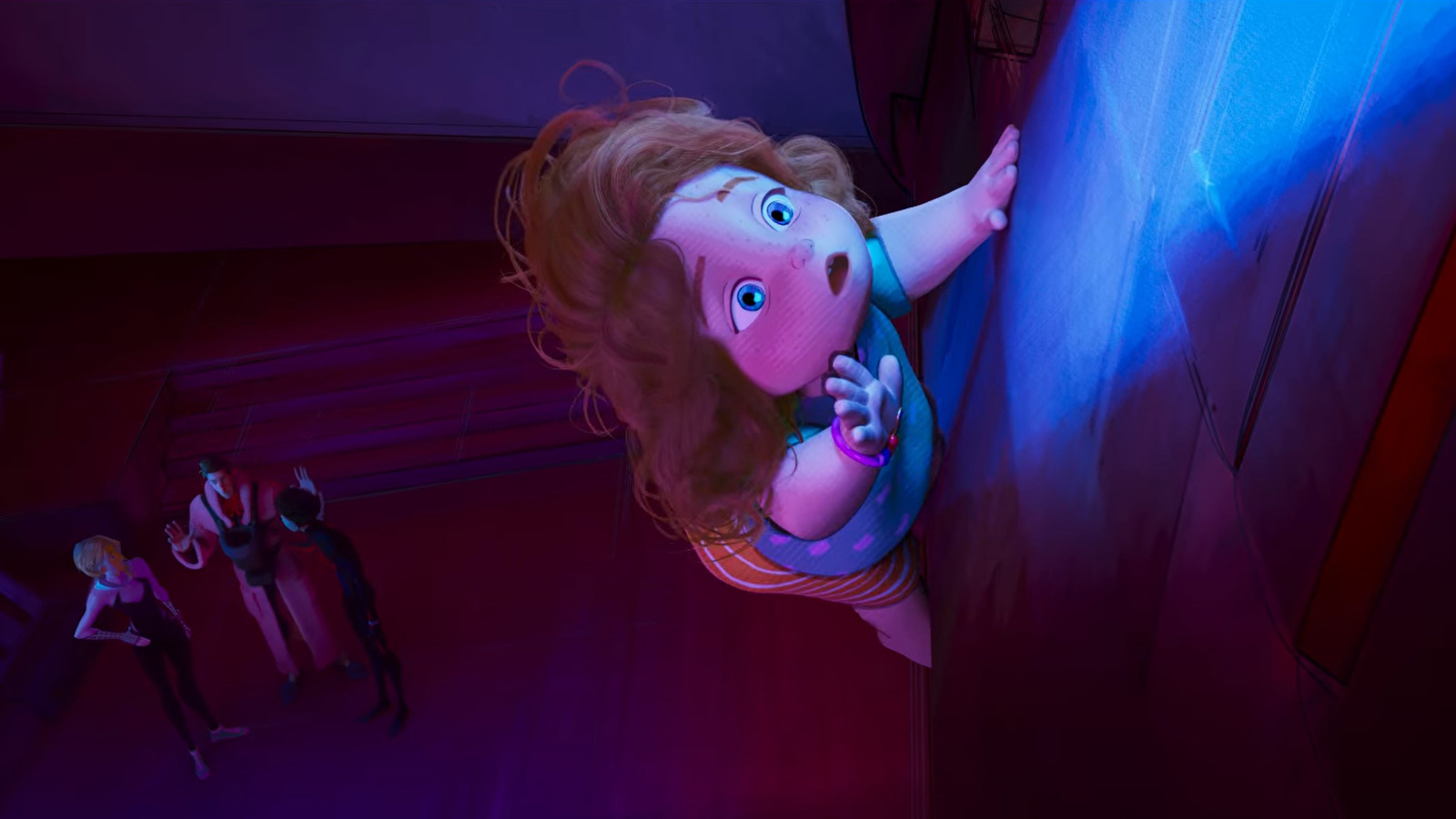
I like how she does “baby things” that are consistent with Spider-Man. So for example, babies like to crawl, and Mayday crawls on walls. They like to play with toys, and Mayday sees her webshooters as a toy. It all feels grounded and not like there is a superbaby that almost has self-awareness (which Jack-Jack and Maggie Simpson kind of do).
JE: I’ve argued a few times before that Spider-Man’s appeal to children is primarily because insects are the first real animals infants and children come across and children have a natural fascination with them. Them crawling on all floors and seeing the ceilings and walls lying down naturally makes a character who can crawl across the walls appealing to them.
And Spider-Man’s popularity among kids is real…kids who are too small to understand or read the story, they love the costume and powers long before they know he’s Peter Parker or hear of Great Power and Responsibility. So I think with Mayday they connected to that. She inverts the phrase “crawl before you walk” because she’ll cover more ground crawling around than walking for most of her childhood…and I love that they kind of have fun with the distortion of these powers and how that means a new kind of life.
LL: That’s a great point. Also, Spider-Man’s mask is simple and doesn’t have any facial expressions, so that has to be another factor why toddlers instantly find him cool.
The other thing that surprised me but shouldn’t have is how unphased Peter is by all this. The natural reaction for any parent would be to freak out, whether the baby has powers or not. Parents in real life freak out all the time when babies crawl to weird places. But the whole time, Peter is nonchalant and even excited to see Mayday crawl. It’s almost like he gets to relive his first days with powers while watching her. And like MJ said, only Peter can understand that.
I know I mentioned this already, but it’s just great how accepting Peter is of all that. How Mayday will never have to hide any of that, even once she is old enough to know what her powers are.
JE: That goes back to what Tom Defalco and Ron Frenz said about Spider-Girl, they said that Mayday was someone who could be Spider-Man without Peter’s sense of guilt and obligation, someone who sees that not as a burden but as a legacy to aspire to and also I guess, to redeem. Like Peter’s always going to live with the guilt of what happened to Ben, but with his daughter around it’s like that guilt is resolved.
On the other hand in Spider-Girl, Peter also had concern about his daughter being in danger and guilt of her following him, because he wanted to put that behind him…but the movie goes more with the idea of Mayday redeeming Peter of his guilt.
Mayday’s powers manifesting as a baby also means Peter and MJ can’t have a regular baby-sitter because Mayday could damage and hurt a civilian so that explains why Peter is with her always and brings her along. I mean some people raise the issue of Peter bringing her to a fight, but I don’t think he expected a fight at Spider-Society HQ and besides it’s fellow spiders, who are all pulling their punches anyway.
LL: Exactly. That and Mayday is a superbaby herself, so she has immunity to a lot of stuff that even most adults don’t have. I also doubt Peter is taking her out when, say, he fights Green Goblin or Doc Ock or Morlun. If he takes her out during fights at all, it’s probably when he fights a weaker B or C-list villain.
One thing I didn’t consider… I heard someone say they thought Peter seemed more unfazed by Miguel than aloof. And that Miguel doesn’t do anything about his attitude, but has no problem making other Spiders fall in line. The person thought it showed how much of a pro Peter is, and that Miguel respects him as an equal. And also he is the “616 Peter”, which has to mean something even if it’s not the actual 616.
I honestly didn’t think of that, but that’s maybe what they were going for with Peter B. Maybe I was too harsh on his comedy parts. I’m sure a lot of that will watch better after Beyond. There are already stuff from Into that watch better for me because of Across.

JE: I love the bit of Peter putting Goblin and Otto dolls in Mayday’s crib. It’s like those guys are so yesterday’s news that he’s fine with them being toys for his daughter. It’s a private mockery of his enemies. And it’s a touch of Peter B’s sarcasm.
And also Mayday being a natural anarchist as Hobie called her, we see that how she makes fun of Miguel and then right before she and Peter leave, she raspberries at her face and giggles and it’s hilarious.
LL: Hah! That’s the other thing I love about Mayday. Spideys are supposed to have chaotic energy. And Mayday has that in spades!
Miguel O’Hara and the Spider Society
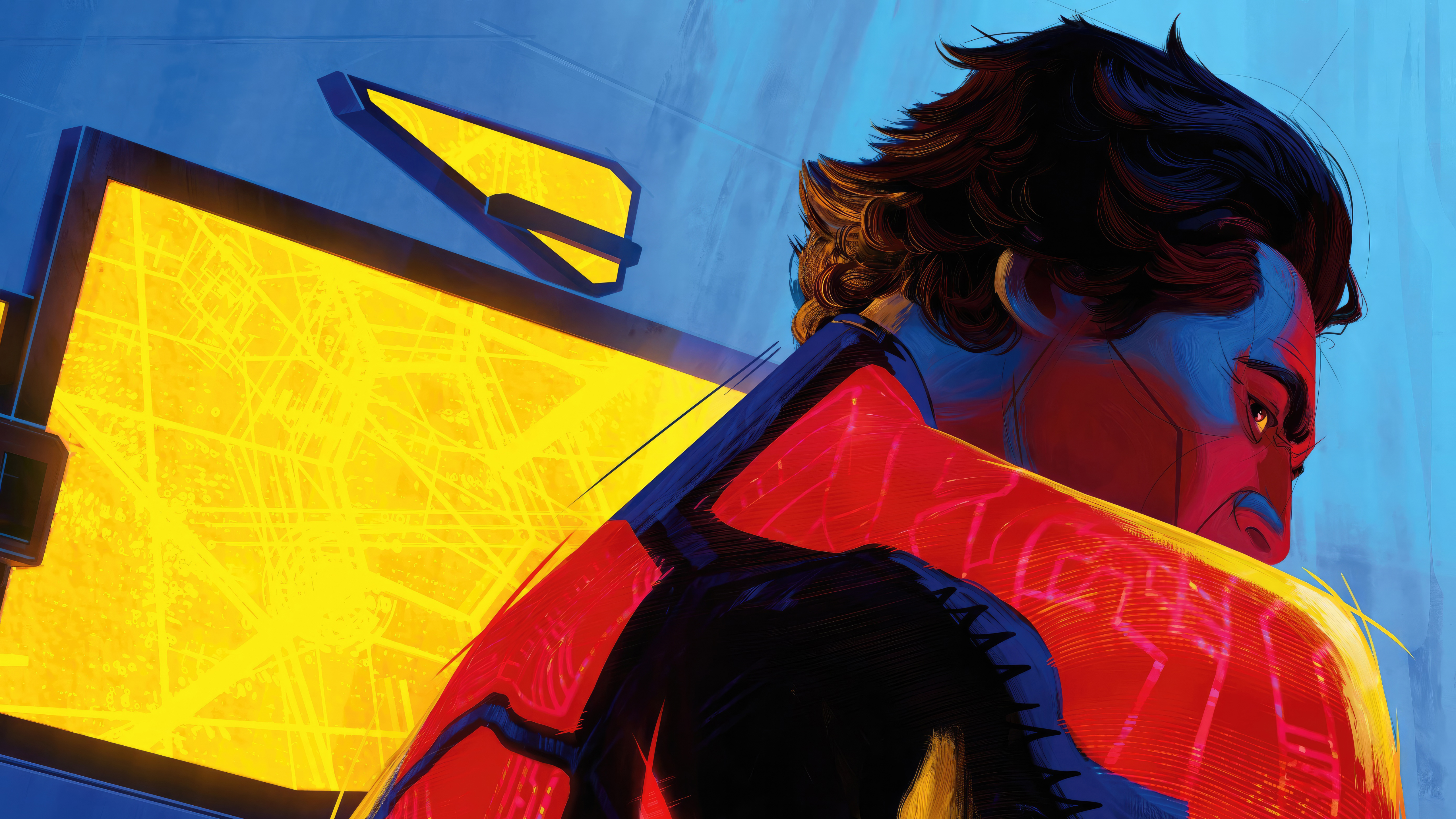
JACK ELVING (JE): I don’t have much to say about Miguel and the Spider-Society. I love the designs of Jessica Drew…that’s so boss and so much better than 616 Jessica Drew. Ultimate Jessica Drew who’s basically Peter’s gender clone is different but even then Jessica Drew here is so much better. I kind of wish Marvel simply used this design because it’s so unique and stylish and one of a kind.
Oscar Isaac did a great job with Miguel, playing him as a good guy forgetting who he is and so on. He brings authority to the role, which comes from him being Oscar Isaac, one of the top five-six working actors today.
The rest of the Spider-Society left me cold. Like for me the whole big Spider-Chase felt strangely underwhelming.
LUCAS LOBUGLIO (LL): I loved how much presence Oscar Isaac brought to the role. His presence in every scene (especially when he is angry) is just pure intimidating.
Only other thing I have to say about Miguel is that I like how he is a bit hypocritical. He expects the Spider-Heroes to adhere to “canon”, but what about himself? In many ways, he is the one who most deviates from Spider-Man: Being humorless is the total opposite of what Spidey is usually like. And I like how he hates MCU Doctor Strange for messing with the multiverse, but he does the same: He feels that sacrificing one life for the “greater good” is just. Plus, if his origin is anything like the comics, he tried to recreate the original Spider-Man and experimented on himself. Thereby making him not that different from Miles who is an “anomaly”.
Ditto on Jessica Drew. She didn’t make my Top 5 favorite characters, but she almost did. And I loved Andy Samberg’s Ben Reilly. There is so much to laugh about there if you know 90’s comics and everything that happened with Ben Reilly.
And yeah, the rest are all just fun easter eggs. They’re not exactly fully-fleshed out characters. I had a lot of fun with the chase scene. But I can understand why others wouldn’t.
The Spot
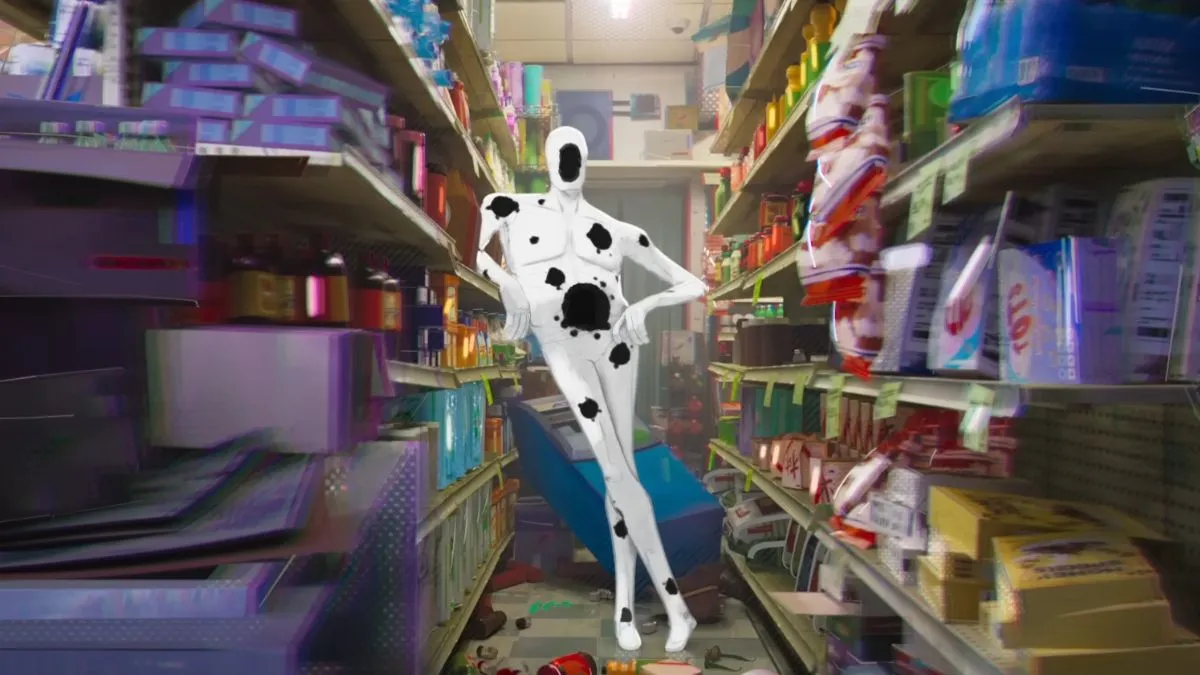
LUCAS LOBUGLIO (LL): The other villain besides Miguel is The Spot. What did you think of him?
JACK ELVING (JE): I was never exactly a big fan of the Spot in comics but as someone who loved the video-game Portal, I thought this was a character with a lot of potential you know, “start thinking with portals”. And I felt that Marvel never really gave the character his due. And I also knew that something about Spot’s character design would just work in the TSV aesthetic and I wasn’t disappointed.
The fight scenes with Spot are amazing. Like overall I’d say the opening Guggenheim Fight with Davinci Vulture is the best action scene, but the Spot scenes were great. Each time Miles encountered Spot it was different.
LL: I liked him a lot too. I thought he was a great parallel to Miles. There is obviously the whole “hero and villain created each other” trope which they’re poking fun at, but I like how the “canon” thing applies to him too. The Spot was never a major villain in any version of Spider-Man. I’d argue he is a C-lister, so even lower than someone like Shocker. So him wanting to go against fan expectations and thereby threatening the fabric of the universe… actually parallels Miles’ story.

I also feel like he is Electro from Amazing Spider-Man 2, but done better. Done better than even Electro in No Way Home. He is a “nobody” who wants to be a “somebody”.
And I too was impressed by the visuals. All the animation around him looks amazing, but they also manage to make him look scary. Particularly when his body turns all-black from all the energy he absorbed. It’s a very menacing design. He reminded me a bit of the shadow creatures from Ico. Funny… those pop out of dimensional holes too.
JE: And I like that they make the character hilarious…like Jason Schwartzman gives a great VO performance (he’s in real life, Nicolas Cage’s cousin, they are both part of the Coppola family, and I can’t wait for him to square off against Cage’s Noir in the sequel). And the thing about Ohnn he starts off as somewhat goofy and nebbish (kicks his own butt and so on) and the whole ATM heist at the start. He also jokes about “chai tea” with Spider-Man India, and says ‘he didn’t mean it like that’. I mean there’s a very Nick Spencer Superior Foes vibe to his dialogue and interactions.
And yeah, the shadow look is amazing. Him levelling up as he says it, is also a video-game term.
The cool surreal bit is him poking his head into one portal and landing in this strange Golden Age comic looking world, all faded colors and so on.
And the backstory is really interesting with The Spot…like him stealing the Spider From Earth-42, being besties with Liv Octopus (I’m not a predictions guy but I’m sure that she’ll return in some form in the final film). And it ties up well.
LL: I love the escalation from silly goofy “villain of the week” who can barely control his powers, to him becoming a force of nature and feeling inhumane. It’s such a great escalation. And it’s another classic Spider-Man thing. In most continuities, Green Goblin, Doc Ock, even Eddie Brock all kinda start out the same way. Doc Ock starts out a loser nerd like Peter. Eddie Brocks starts out a loser. And Green Goblin was just a guy trying to take over the mob, and then everything just escalated. That’s kinda The Spot too.

JE: Well Doctor Octopus isn’t exactly a “loser nerd”. In 616 he was a respected nuclear physicist charged with handling dangerous stuff. He was hardly Frank Grimes (from The Simpsons). But yeah, The Spot in this movie really escalates…and I also like that at the end of the day Spot is also just a bad guy. He basically takes no responsibility for working for a crime boss, selfishly tinkering with multiverse stuff for funsies, and it was his own fault that he lost his humanity but he blames Miles for no reason.
Also his natural default state is a blank white being…he’s literally the whitest guy, so there’s also that symbolism going in the film.
LL: Hmm, that part I don’t know. I mean, he technically gets darker the more dangerous he becomes. Which can send problematic messages if we look at him in a race way. I don’t know if that’s a good idea.
He does say he is empty, though. I thought him starting out like a blank canvas was good symbolism of that. He is an empty human being. He has nothing going for him, inside or outside. Wow… He mirrors the blank white space that the school counsellor showed Miles’ parents. I just realized that.
JE: Wow, great catch.
I mean the Spot needs the black anti-matter to cast portals. He runs out of spots in Earth-42 and so he goes dimension hopping to find other Alchemaxes to find more dark matter to cast more portals. But I guess that point ought to be more below the surface.
And also in animation terms, think of Syndrome. He’s like one of the best villains in animation and he started out as a joke and manages to be a heavy at the same time. So I think Spot’s like that. Also I guess Turbo from Wreck-It-Ralph (which is also a movie about crossing over other games ultimately causing a collapse and so on).
LL: Syndrome is a great analogy. Since Syndrome too was a parody of supervillains in a lot of ways. He had the “hero created by the villain” thing going on too.
I like how The Spot has to look inside himself (literally) to find his motivation and what he wants to do in life. There’s all this self-help now that tells you to “look inward” and help you find your “inner world” and advice among those lines… but in The Spot’s case it’s literal. It’s both deep and hilarious.
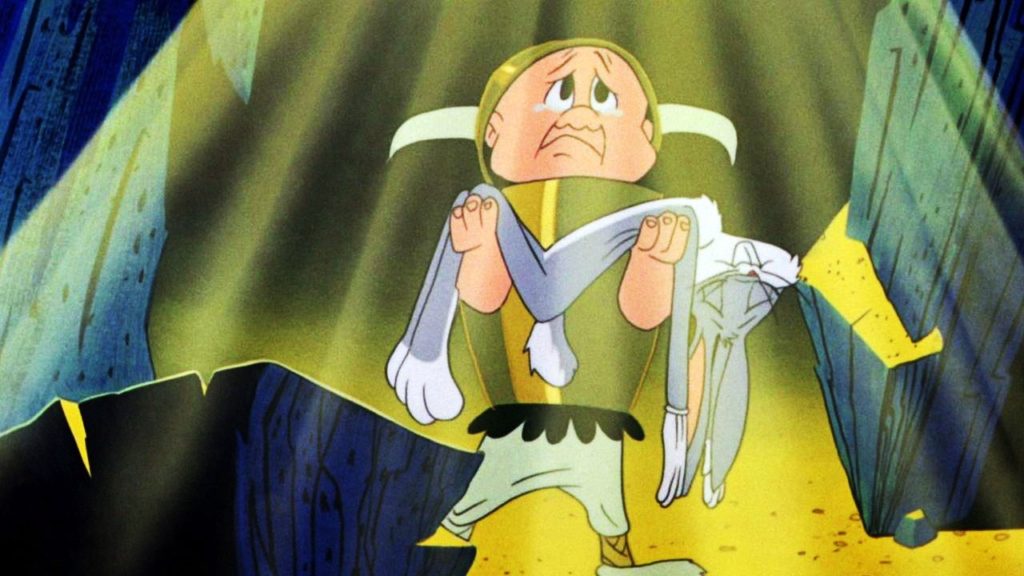
JE: I kind of feel that people need to see TSV in a broader context of animation than superhero stories, because in animation goofballs becoming menaces all of a sudden has a history. Elmer Fudd was an idiot of course but he finally did kill Bugs Bunny in “What’s Opera, Doc?” (though he felt bad about it), Syndrome is another example, and of course you have Hades in the Disney Hercules…total clown and hilarious but he’s also the God of the Underworld and so on.
Yeah, the Spot didn’t disappoint. I knew that he’d be the best villain for these kind of films and animation, and they did a great job.
Favorite Characters and Moments
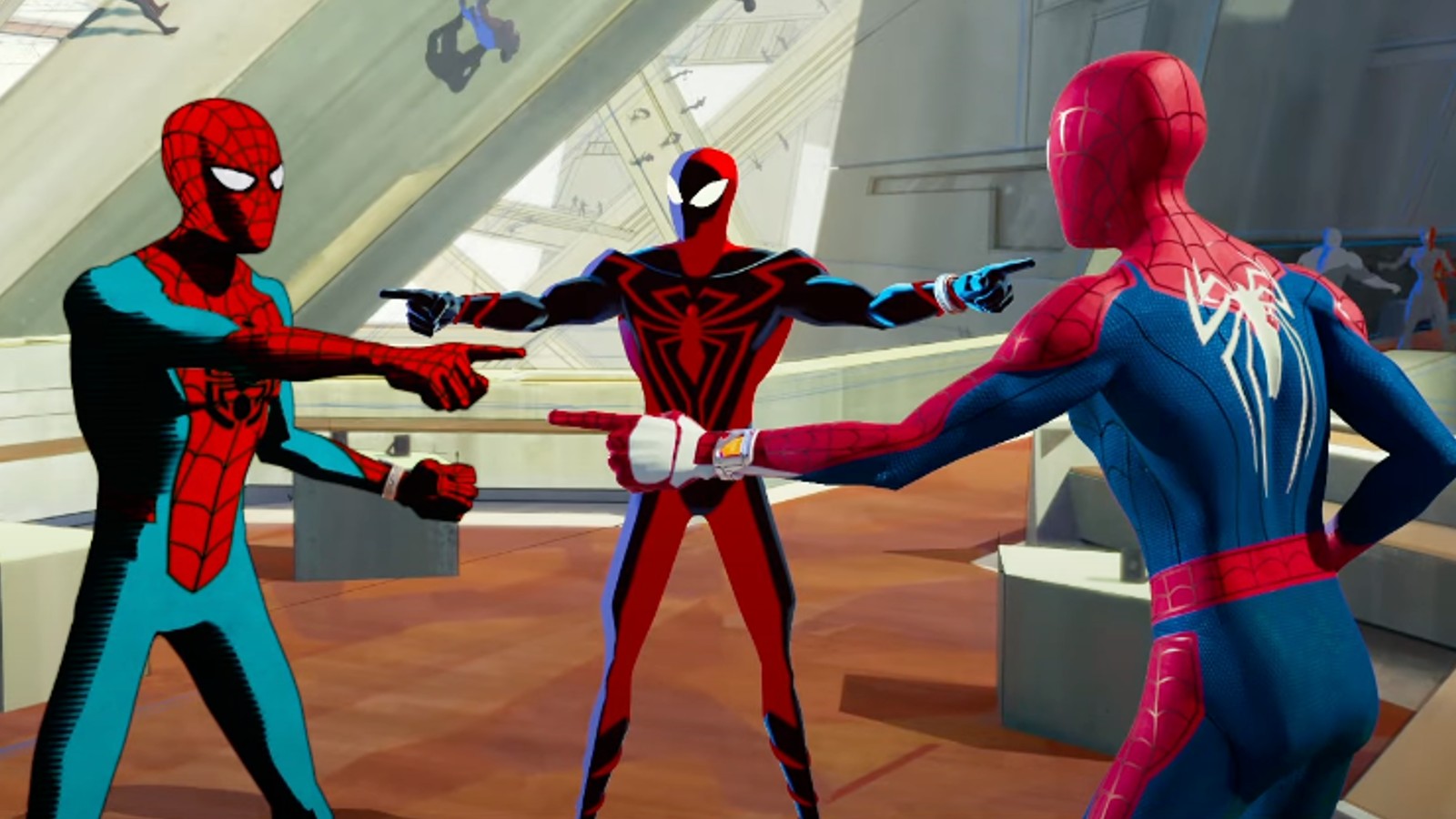
LUCAS LOBUGLIO (LL): Let’s go on to our favorite characters. Do you have a Top Five? I wrote a Top Five list in my first impression. Gwen was my favorite, followed by Miguel, followed by Ben Reilly and the whole Morales family, followed by Hobie. My opinion mostly stayed the same, except for Ben Reilly. Still liked the humor there but it’s best on a first viewing. And I like Miles even more now that I saw it twice. I’d rank him as my second favorite character (tied with Miguel).
I didn’t get a chance to mention Jess and The Spot because I had to pick only five, but they’re both honorary mentions. They would have been the next ones on the list. There are honestly no bad or even “mid” characters in this, so ranking them feels weird in the first place.
JACK ELVING (JE): My favorite characters are Miles, Rio Morales, Hobie, Gwen, Mayday. In addition I’d add Peter B/, The Spot, Jeff Morales, and DaVinci Vulture.
LL: Nice! Peter and Mayday are lower for me since they didn’t have as much screentime. Same reason why the DaVinci Vulture slipped my mind, but he is great too.
What are some of your favorite moments and scenes?
JE: 1) The Opening Guggenheim Fight Scene is the high point in visuals, aesthetic and music. The Pemberton score in that movie is in my head.
2) The entire sequence of the party on top of the Morales Building, both the first part and later with Gwen and ending with Rio’s speech to Miles.
3) The first fight scene with Miles and Spot before he meets the counsellor. The visual of the Spot tangled in multiple portals was cool.
4) Gwen confessing to her Dad near the end.
5) Peter and MJ talking while they watch over Mayday.
Wish I could add the final scene where Miles meets AU Miles aka the Prowler Jr.
LL: All of those are great. Mine are:
1. All the one-on-one parent scenes. I said the parent-and-child stuff are some of the strongest thematic things in this, so every one-on-one between a parent and a child in this is like an emotional anchor. The two scenes with Gwen and her dad, the one-on-one Miles as Spider-Man has with Jefferson, the one-on-ones he has with his mom (one in his world and one in Earth-42), and the talk Gwen has with Miles’ parents… all of those are great.
2. All the playful scenes between Miles and Gwen, and the scene where they’re on top of the New York skyline.
3. The scene on Earth 616 with Peter, MJ and Mayday. I love how MJ has a speech in each of these movies. And her speech just perfectly encapsulates this one.
4. Miguel’s one-on-one with Miles on top of the train going up, and how Miles breaks free from that and declares he’ll do things his way.
5. The entire rooftop party at the Morales Building.
And as an honorary mention, I love all the cameos and easter eggs in the Spider Society. I talked about some of them already, but others I haven’t mentioned are Peter Parkedcar – cracks me up because it’s so silly and he isn’t even parked – and Insomniac Spidey keeping all the video game villains under control, including the Atari Goblin.
Concluding Thoughts
LUCAS LOBUGLIO (LL): The more I think about it, these films are like the first two Nolan Batman films, but even better.
The first two Nolan Batman films weren’t perfect off-the-page adaptations, but their best skill was communicating ideas about the characters. What Batman stands for, why he doesn’t use guns, why he’s needed, what his relationship to The Joker is essentially about… Batman Begins and The Dark Knight communicate those ideas better than almost anyone else, in my opinion. Into and Across The Spider-Verse are like that. They communicate the essence of Spider-Man and what Spider-Man is about better than literally anything else. They “get” it.
Except that unlike the Nolan films, these films are more “comic booky” and (most of) the characters are in fact straight off the page. Once Beyond is out, I also think this will work better as a retroactive trilogy than those films did.
They’re also uniquely original. Most comic book movies and Spider-Man adaptations are adaptations of past comics – if not of the stories, then of the characterizations. But ITSV and ATSV feel like more than that. This franchise feels like what a comic writer would do if they came on board and had to expand the comic mythos. And that’s just so unique because superheroes in the film medium are usually not one step ahead of the comics the way this is. Yes, some of that has to do with how much Spider-Man comics stagnated in recent years. But even taking that into account, it’s still impressive. We should give these movies more props for that.
JACK ELVING (JE): Yeah, ITSV and especially ATSV fittingly given its themes feels like an extension of it. Like it’s trying to add to the comics and build on stuff and not just remix or homage or allude to stuff and so on. It feels like an extension of what’s already there.
David Walton said something interesting to me about the movie’s themes. This conflict between something being a “canon event” and something being “an anomaly”. He said everything that becomes a canon event starts out as an anomaly. And it’s like that’s what the movie’s about right? Miles started out as an anomaly. He was a legacy to an AU title, Ultimate Spider-Man that was in a period of low sales and declining interest. Than somehow he became the biggest legacy hero ever. Like Miles came in the final years of Ultimate Marvel and became the biggest character from Ultimate Marvel (you could say Ultimate Fury being Jackson is the second one, but that’s more suspect, imo).
So I think in that way the movie’s reflective about that. These movies were anomalies when they came out. An animated feature about superheroes, done in a non-Pixar non-anime style, featuring a legacy hero and a (for-its-time) hard sell idea of the multiverse to a mainstream which in 2018, was unfamiliar with the tropes. The sequel comes out in 2023 to basically the world it had made since ITSV obviously influenced and set-in-stone and confirmed MCU’s ideas to lean into the Multiverse even more and ATSV, is already questioning and going further from that.
To quote a favorite lyric from “Sunrise“, by Childish Gambino (Donald Glover): “While they be sleepin’ I be onto that new shit”. So that’s what I feel about ATSV, like for me I don’t know if I care about Secret Wars or whatever the hell MCU do after this film and Beyond.
Still, ATSV was a grand experience and I loved sharing it with everyone. The real Spider-Verse is the friends we made along the way, hah. That’s cliché, but it’s also true.
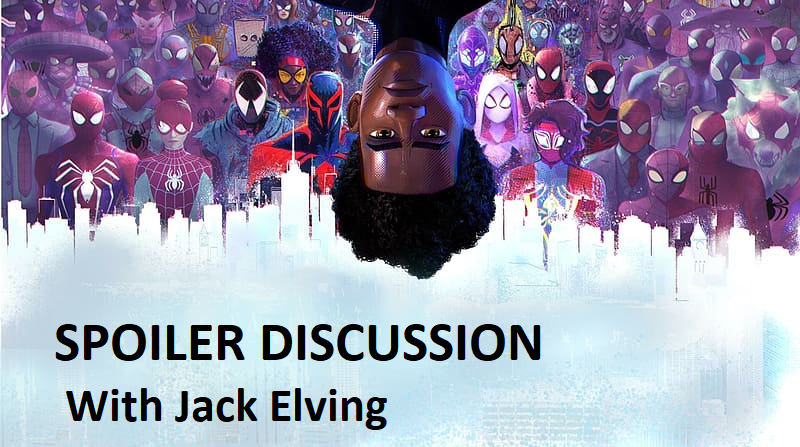
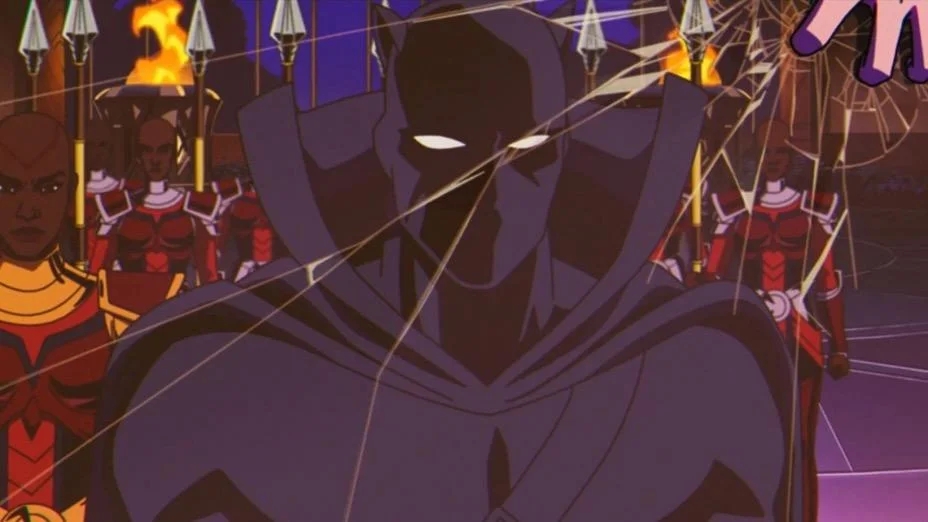
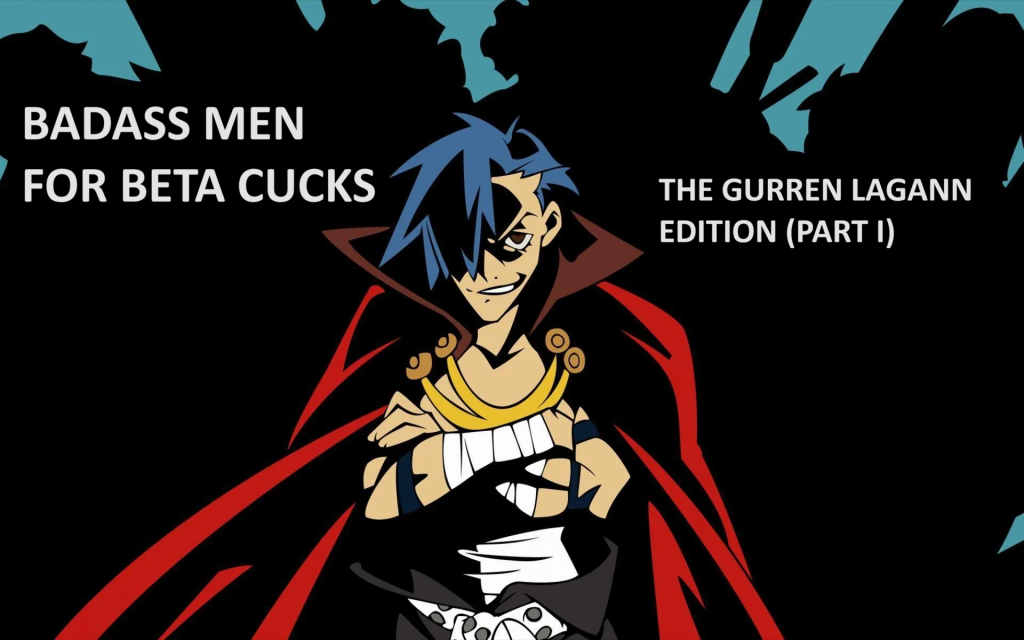
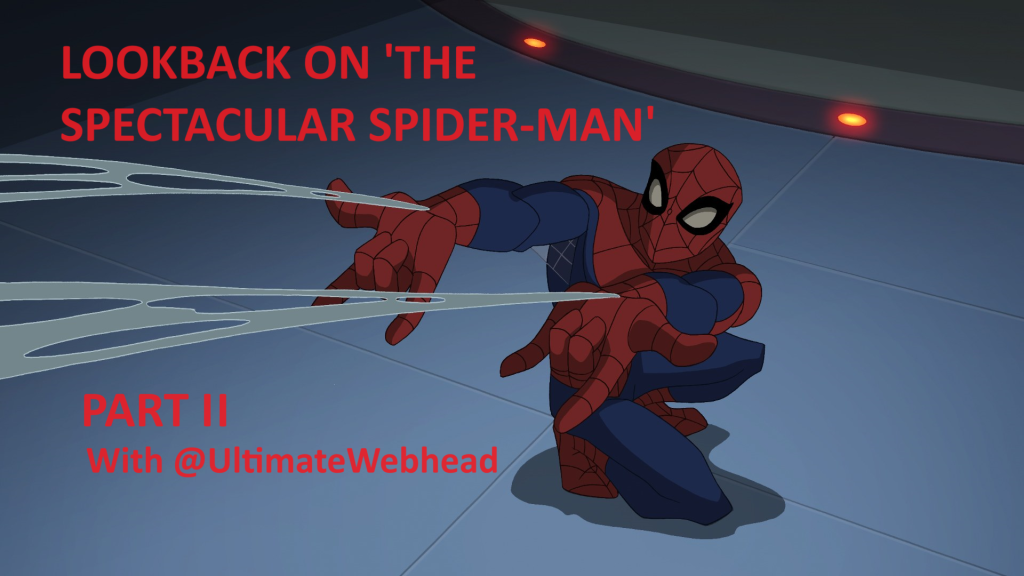
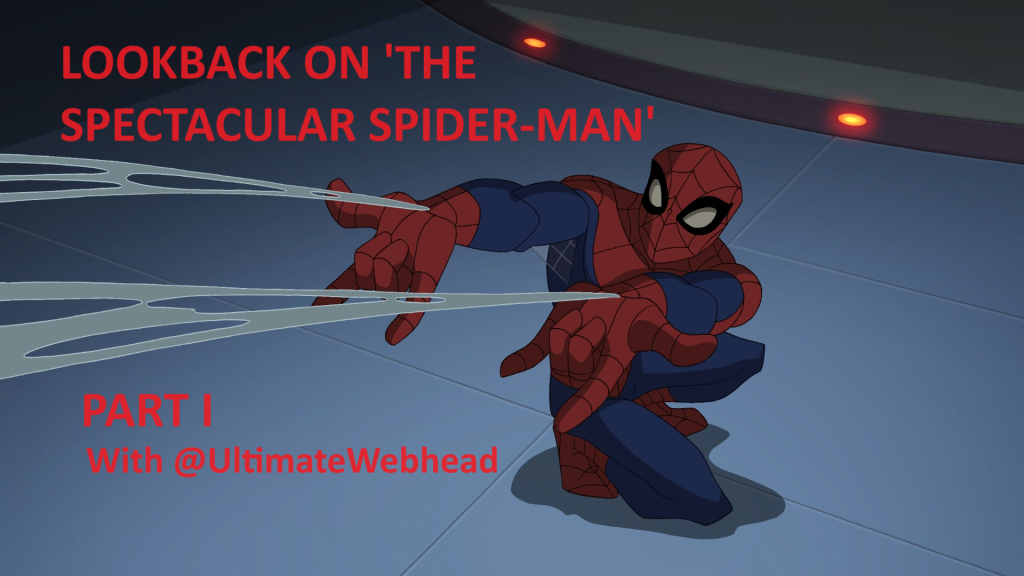
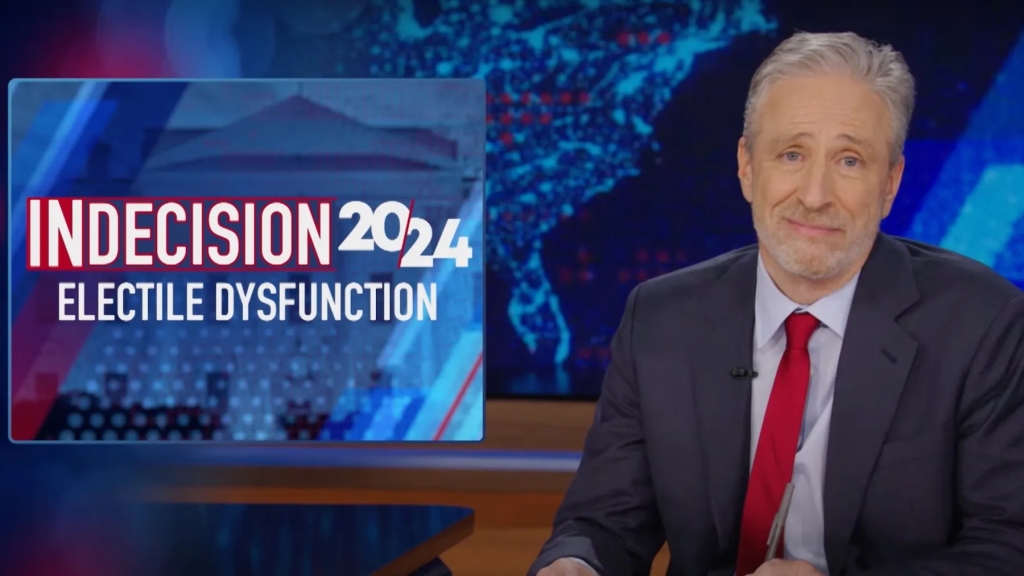
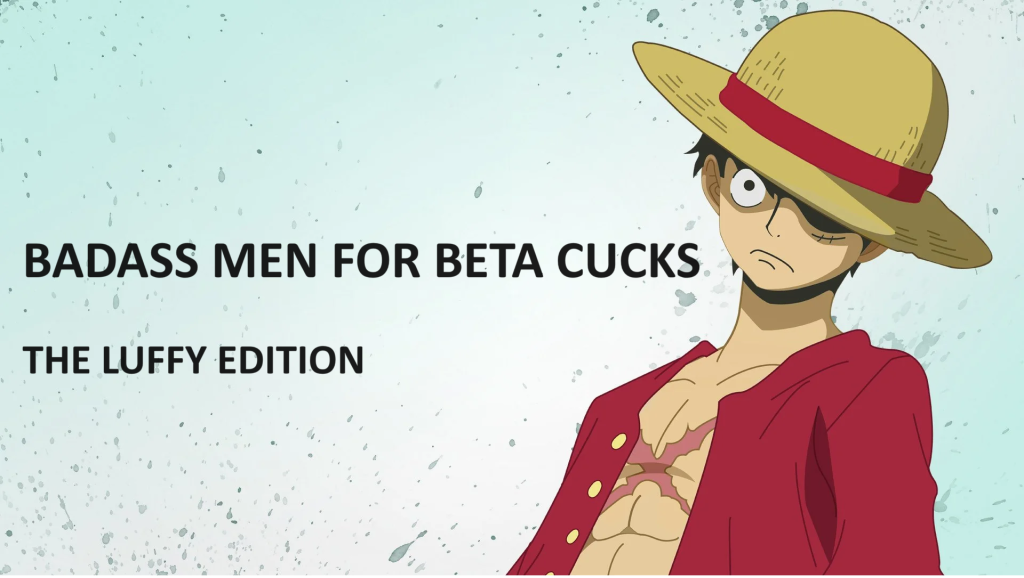
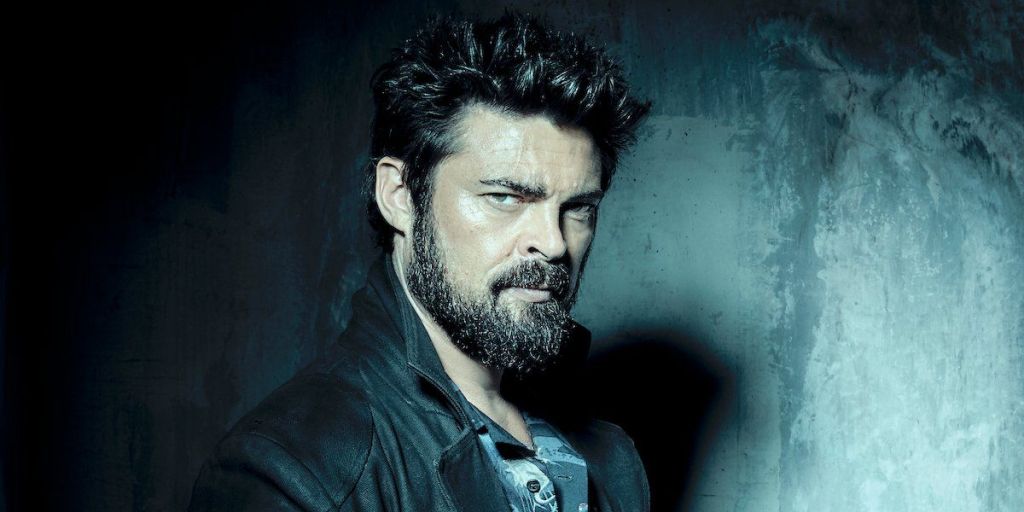
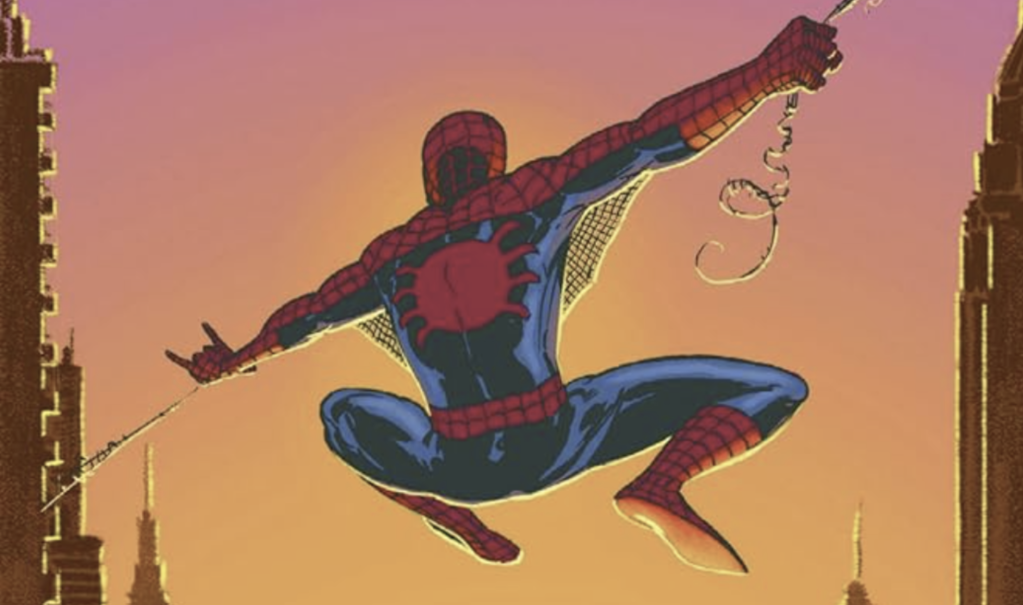
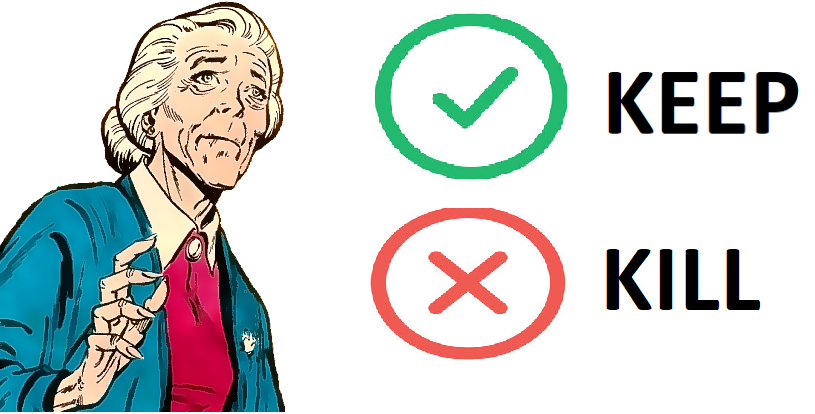
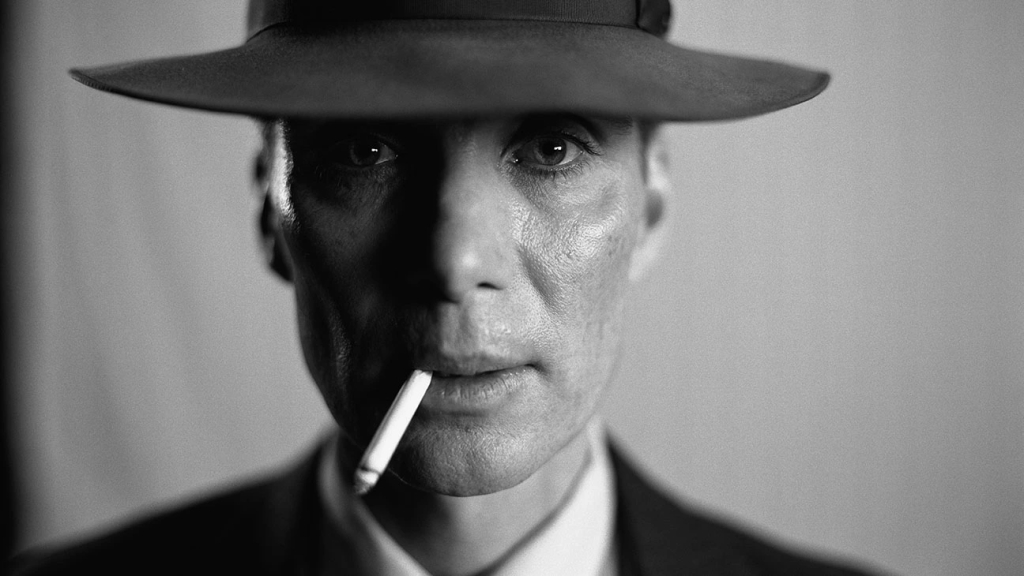
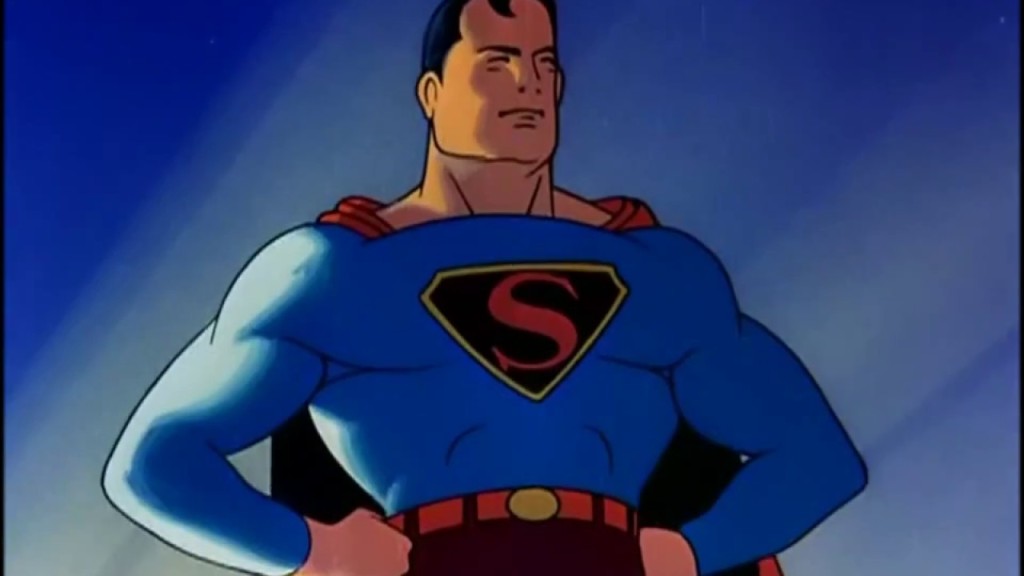
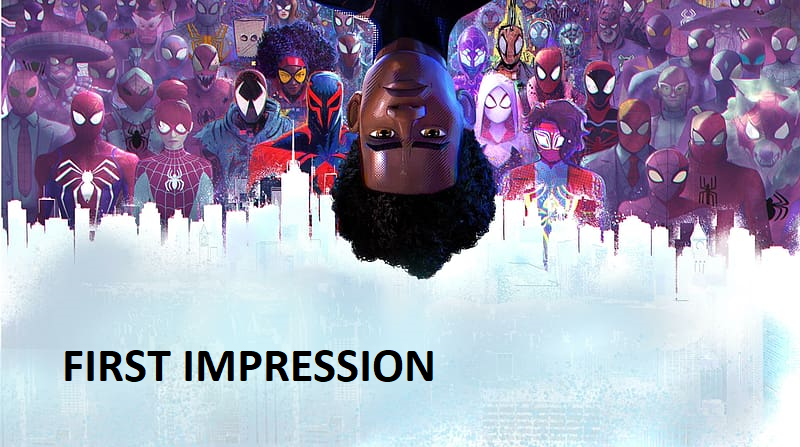
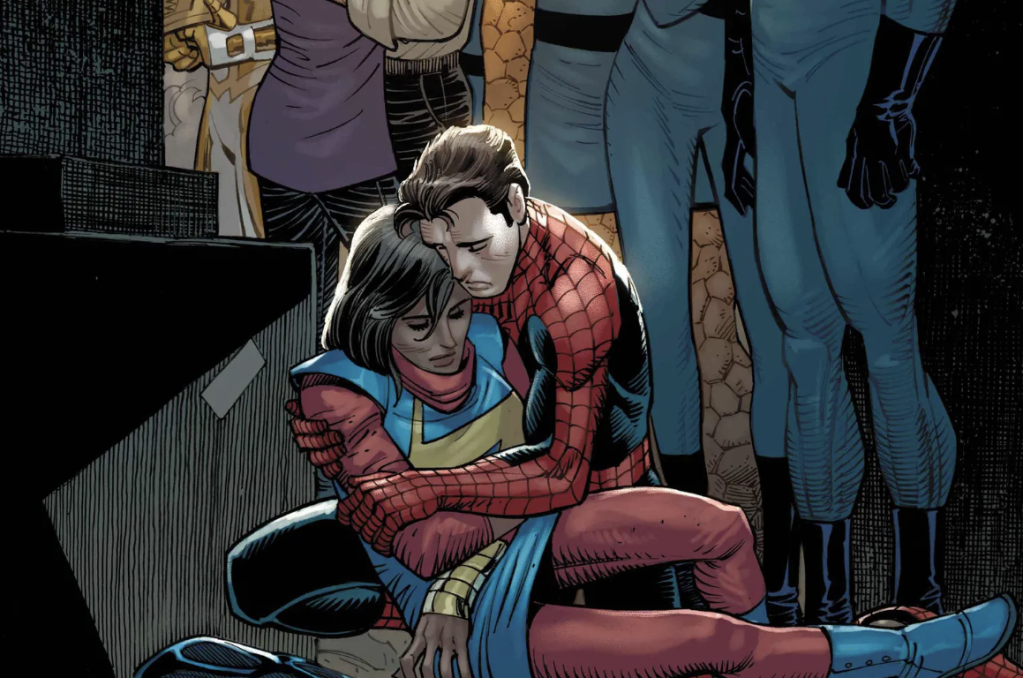
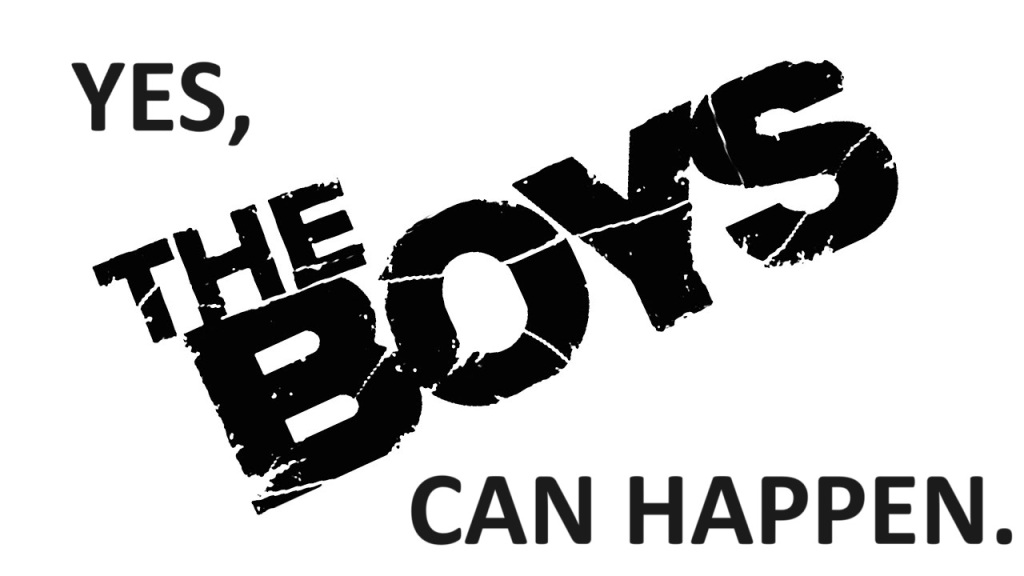
Leave a comment